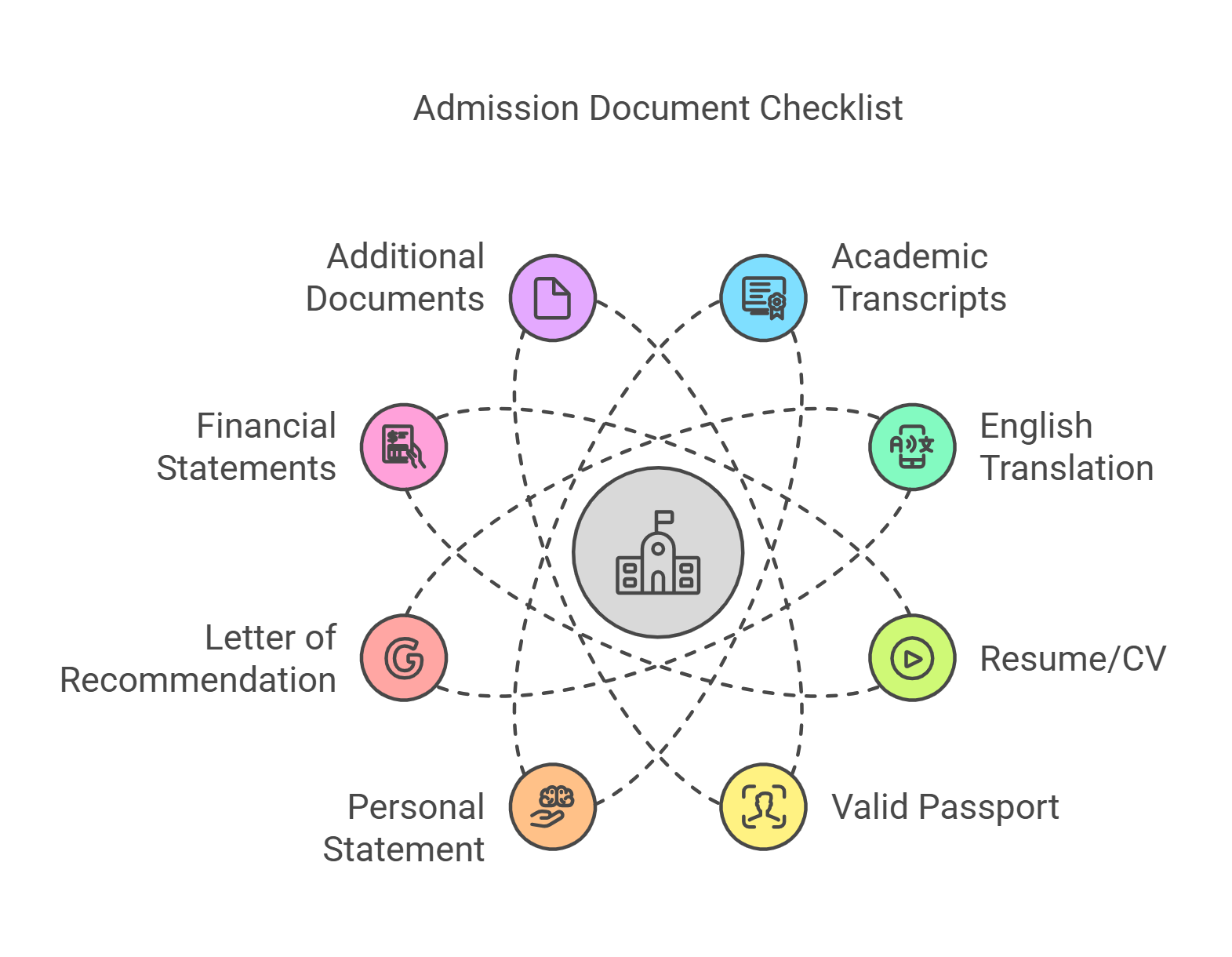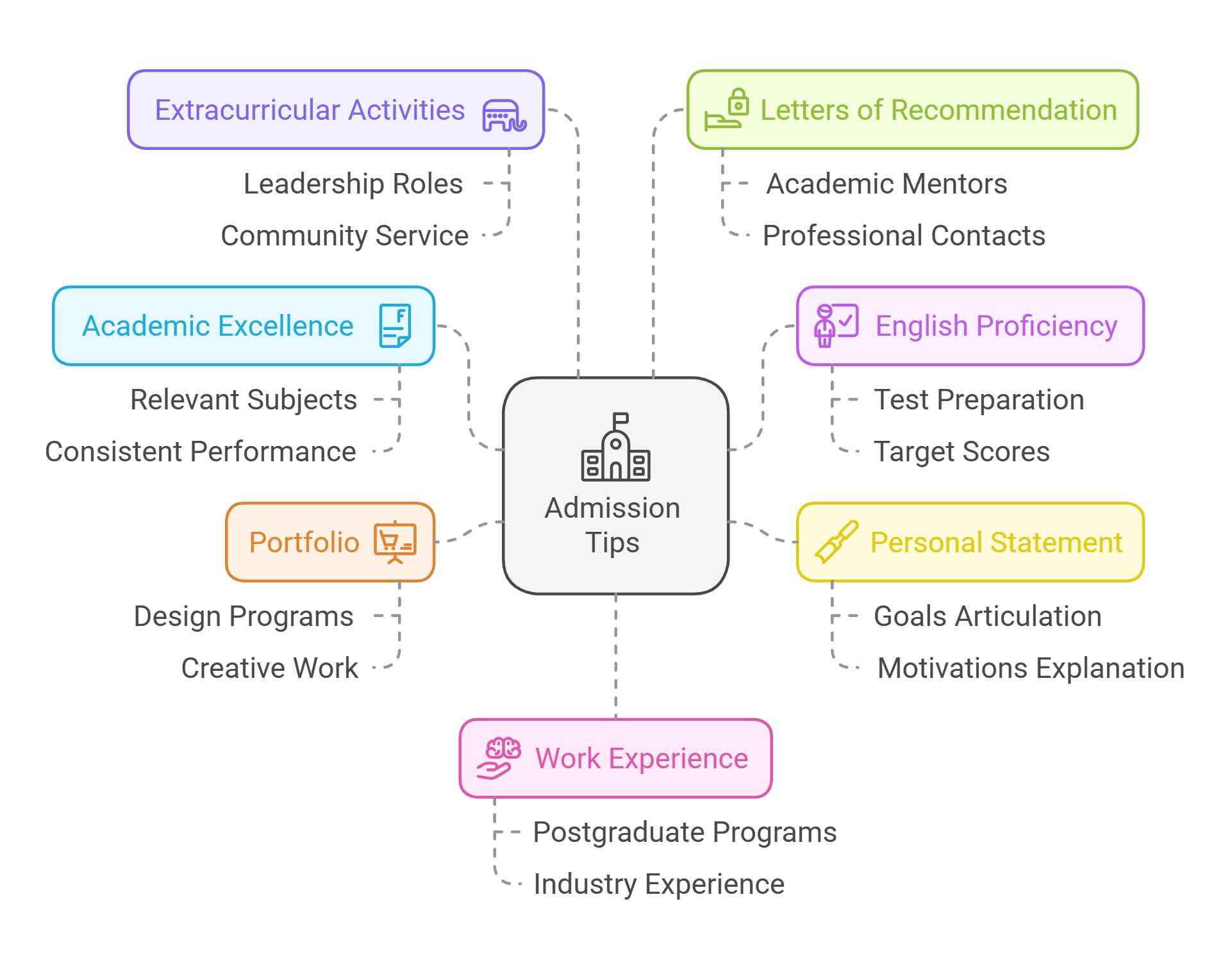Yatin Kumar Study Abroad Content Specialist
Study Abroad Content Specialist
Pursuing a Masters in Electrical Engineering in the UK offers an exceptional combination of academic rigor and practical expertise, tailored to meet the demands of today’s fast-paced industries. Programs are typically 1 year full-time or up to 3 years part-time/online, providing flexibility for diverse learners. With specializations in areas such as Power Systems Engineering, Analogue Digital, and Electronics Engineering, the field offers unmatched opportunities. The UK, home to several top-ranking universities, not only provides global recognition but also ensures lucrative career prospects. Graduates can earn an average annual salary of £37,000 (₹32.7 lakhs), making the UK a premier destination for electrical engineers seeking world-class education and competitive earnings.
Also Check: Top Electrical Engineering Colleges In UK
- Eligibility Criteria for Masters in Electrical Engineering in the UK
-
- Admission Process for Masters in Electrical Engineering in the UK
- English Proficiency Requirements for International Students
- Tuition Fees and Costs
-
- Career Prospects and Scope in U
- Frequently Asked Questions (FAQs)
Eligibility Criteria for Masters in Electrical Engineering in the UK
To be eligible for a Masters in Electrical Engineering in the UK, applicants must meet the following criteria:
- Academic Qualifications:
- Bachelor's degree in Electrical, Electronics, or a related engineering field.
- Minimum percentage: 60% - 70%.
- English Proficiency:
- Additional Requirements:
- Letters of Recommendation (LORs)
- Personal Statement
- Relevant work experience (for certain programs)
- Portfolio (for design-related specializations)
Top Universities for Masters in Electrical Engineering in the UK
According to the QS News Ranking (2025) for Electrical and Electronics Engineering, the following universities are top choices for pursuing a Masters in Electrical Engineering:
| University | Program | Total Program Fees (GBP) | Total Program Fees (INR) |
|---|---|---|---|
| Imperial College London | MSc in Electrical Engineering with Analogue Digital | £40,900 | ₹3,61,160 |
| University of Manchester | MSc Electrical Power Systems Engineering (online) | £33,500 | ₹2,95,900 |
| University of Glasgow | MSc in Electronics and Electric Engineering | £29,370 | ₹2,60,748 |
| University of Nottingham | MSc in Electrical Engineering | £28,600 | ₹2,53,040 |
| Swansea University | MSc in Electrical and Electronic Engineering | £21,250 | ₹1,88,200 |
| Coventry University | MSc in Electrical and Electronic Engineering | £20,050 | ₹1,77,620 |
| University of Plymouth | MSc in Electrical and Electronic Engineering | £18,000 | ₹1,59,120 |
| University of Portsmouth | MSc in Electrical and Electronic Engineering | £19,200 | ₹1,69,680 |
| Brunel University London | MSc in Advanced Electronic and Electrical Engineering | £23,615 | ₹2,08,826 |
Admission Process for Masters in Electrical Engineering in the UK
The admission process for Masters in Electrical Engineering in the UK involves meeting specific academic requirements, submitting essential documents, and adhering to university application timelines.
Application Timeline:
- Primary Intake: September
- Additional Intakes: January, February, May, and October
Application Platforms:
- University Websites: Direct application through the respective university portals.
- UCAS Portal: Some universities accept applications via UCAS.
Steps to Apply:
- Research Programs: Identify specializations that align with your career goals.
- Prepare Documents: Gather academic transcripts, proof of English proficiency, resume/CV, personal statement, and letters of recommendation.
- Submit Application: Apply online through the university’s portal or UCAS.
- Visa Application: Upon acceptance, apply for a UK Student visa.
| University | Minimum % Required in Bachelor's | Additional Requirements |
|---|---|---|
| Imperial College London | 75% overall | Substantial electrical/electronic component in bachelor's;2 LORs |
| University of Manchester | 60% – 70% | Completed work-based dissertation;One referee report form & LOR;CV or Personal Statement |
| University of Glasgow | 75% overall OR 60% – 70% overall and 75% in maths, core subjects | One LOR |
| University of Nottingham | 60% – 70% | Two LORs |
| Brunel University London | 60% – 70% | Relevant work experience |
| Swansea University | 60% – 70% | Open references/letter of support;CV;Personal Statement |
| Coventry University | 60% – 70% | One academic reference;Personal Statement |
| University of Portsmouth | 60% – 70% in related subjects or relevant professional experience | No additional requirements |
| University of Plymouth | 60% – 70% | 250 – 400 word Personal Statement;CV |
| Sheffield Hallam University | 60% – 70% in science or engineering subjects ORBachelors in relevant field & 1 year of industrial experience ORDiploma in technological area & 3 years of relevant experience | No additional requirements |

English Proficiency Requirements for International Students
| University | IELTS | TOEFL (iBT) | PTE |
|---|---|---|---|
| Imperial College London | 6.5 | 92 | 62 |
| University of Manchester | 6.5 | 90 | 58 |
| University of Glasgow | 6.5 | 90 | 60 |
| University of Nottingham | 6.0 | 79 | 55 |
| Brunel University London | 6.0 | 79 | 51 |
| Swansea University | 6.5 | 88 | 62 |
| Coventry University | 6.5 | 90 | 55 |
| University of Portsmouth | 5.5 | 72 | 51 |
| University of Plymouth | 6.0 | 90 | 58 |
| Sheffield Hallam University | 6.0 | 79 | 52 |
Note: Conversion Rate - 1 GBP = ₹88.40 INR
Tuition Fees and Costs
The tuition fees for pursuing Masters in Electrical Engineering from top universities of UK ranges between 11 lakhs to 31 lakhs per annum. The amount charged by the University of Plymouth is less than half of what is charged by Imperial College London.
| University | Total Program Fees (GBP) | Total Program Fees (INR) |
|---|---|---|
| Imperial College London (ICL) | £40,900 | ₹3,61,160 |
| University of Manchester | £33,500 | ₹2,95,900 |
| University of Glasgow | £29,370 | ₹2,60,748 |
| University of Nottingham | £28,600 | ₹2,53,040 |
| Swansea University | £21,250 | ₹1,88,200 |
| Coventry University | £20,050 | ₹1,77,620 |
| University of Plymouth | £18,000 | ₹1,59,120 |
| University of Portsmouth | £19,200 | ₹1,69,680 |
| Brunel University London | £23,615 | ₹2,08,826 |
Scholarships for Masters in Electrical Engineering in the UK
Multiple scholarships for master’s students in the UK are available through universities or even private agencies or organizations. The table below shows the various international scholarships to study in the UK.
| Scholarship | Awarding Agency | Award Value (GBP) | Award Value (INR) |
|---|---|---|---|
| International Masters Engineering and Computing Scholarship | University of Leeds | £4,000 | ₹3,53,600 |
| MSc Electrical Power Engineering Scholarship | Glasgow Caledonian University | £3,500 | ₹3,094,000 |
| Aston University International Women in Engineering Scholarship | Aston University | £6,000 | ₹5,30,400 |
| Chevening Scholarships | Imperial College London | Variable | Variable |
| Northumbria Global Scholarship | Northumbria University | £2,000 | ₹1,76,800 |
| International Postgraduate Taught Scholarship | The University of Sheffield | £2,500 | ₹2,21,000 |
| Commonwealth Masters Scholarship | Commonwealth Masters Scholarships | Variable | Variable |
| Fulbright-Imperial Scholarships | Imperial College London | Full tuition fees waived | Full tuition fees waived |
| Gates Cambridge Scholarship | Cambridge University | Variable | Variable |
| Rhodes Scholarships for International Students | Oxford University | £15,144 | ₹13,36,896 |
For more scholarships, click here.
Career Prospects and Scope in UK
- Median Salary: Graduates can expect an average annual salary of £37,000 (₹3,27,800).
- Top Employers: Arup Pty Ltd, DNV GL, Imperial College London, National Oilwell Varco, UK Power Networks.
- Job Titles and Salaries:
| Job Title | Average Annual Salary (GBP) | Average Annual Salary (INR) |
|---|---|---|
| Senior Electrical Engineer | £39,577 | ₹3,49,932 |
| Electrical Engineer | £30,500 | ₹2,69,200 |
| Electrical Design Engineer | £36,838 | ₹3,26,119 |
| Project Engineer | £32,852 | ₹2,91,533 |
| Senior Electronics Engineer | £50,341 | ₹4,43,720 |
| Energy Consultant | £49,569 | ₹4,38,575 |
| Electronics Engineer | £29,966 | ₹2,64,698 |
Report by QS 2025: 8 UK universities are ranked among the top 100 globally for Electrical and Electronics Engineering.

A Masters in Electrical Engineering from the UK equips students with advanced technical skills and industry insights, enhancing their career prospects globally. With a range of specializations, competitive salaries, and opportunities for research and development, the UK remains a prime destination for aspiring electrical engineers. By meeting the academic and application requirements, securing scholarships, and preparing a strong application, international students can successfully embark on their postgraduate journey in the UK.
Frequently Asked Questions (FAQs)
Ques. What are the key benefits of pursuing a Masters in Electrical Engineering in the UK?
Ans. The UK offers globally recognized degrees, industry-aligned programs, and access to cutting-edge research facilities. Graduates benefit from high employability, competitive salaries, and exposure to a diverse professional network.
Ques. Are scholarships available for international students pursuing Masters in Electrical Engineering in the UK?
Ans. Yes, scholarships such as Chevening, Rhodes, and Fulbright are available. Many universities also offer program-specific scholarships ranging from £2,000 to full tuition waivers, easing financial burdens.
Ques. How long can international students stay in the UK after completing their degree?
Ans. The UK allows international graduates to stay for 2 years under the Graduate Route visa, providing opportunities to seek employment and gain work experience.
Ques. What is the demand for electrical engineers in the UK?
Ans. Electrical engineers are in high demand across industries such as renewable energy, transportation, and construction. The sector is projected to grow by 5-7% annually, creating ample job opportunities.
Ques. Can I work while studying for my Masters in the UK?
Ans. Yes, international students can work up to 20 hours per week during term time and full-time during holidays, helping to offset living expenses.



Comments